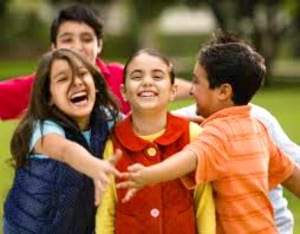
The researchers conducted a meta-analysis, reviewing 20 studies that investigated the relationship between theory of mind and popularity. Taken together, the analysis included more than 2,000 children between ages 2 and 10 from Asia, Australia, Europe, and North America. Most of the children were Caucasian, but the children came from various socio-economic backgrounds. The studies assessed student popularity via peer nominations and teacher ratings.
The results revealed that theory of mind skills are correlated to increased popularity. This trend was present in pre-school aged children and older children, indicating that the same skills support peer relationships throughout childhood.
The connection between theory of mind and popularity was weaker for boys than for girls. This may reflect gender differences in the way boys and girls typically relate to each other.
“Our study suggests that understanding others’ mental perspectives may facilitate the kind of interactions that help children become or remain popular,” explains study leader Virginia Slaughter, professor of psychology and head of the School of Psychology at the University of Queensland.
The findings suggest that training children to be sensitive to others could improve peer relationships. This type of training could be an important tool for helping children who struggle with socializing or with theory of mind, like children with autism spectrum disorder.
This research is published in the journal Child Development.
Previous news in emotional regulation:



 © 2025 Unyte Health US Inc.
© 2025 Unyte Health US Inc.